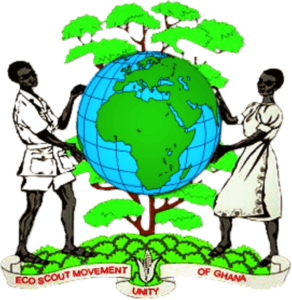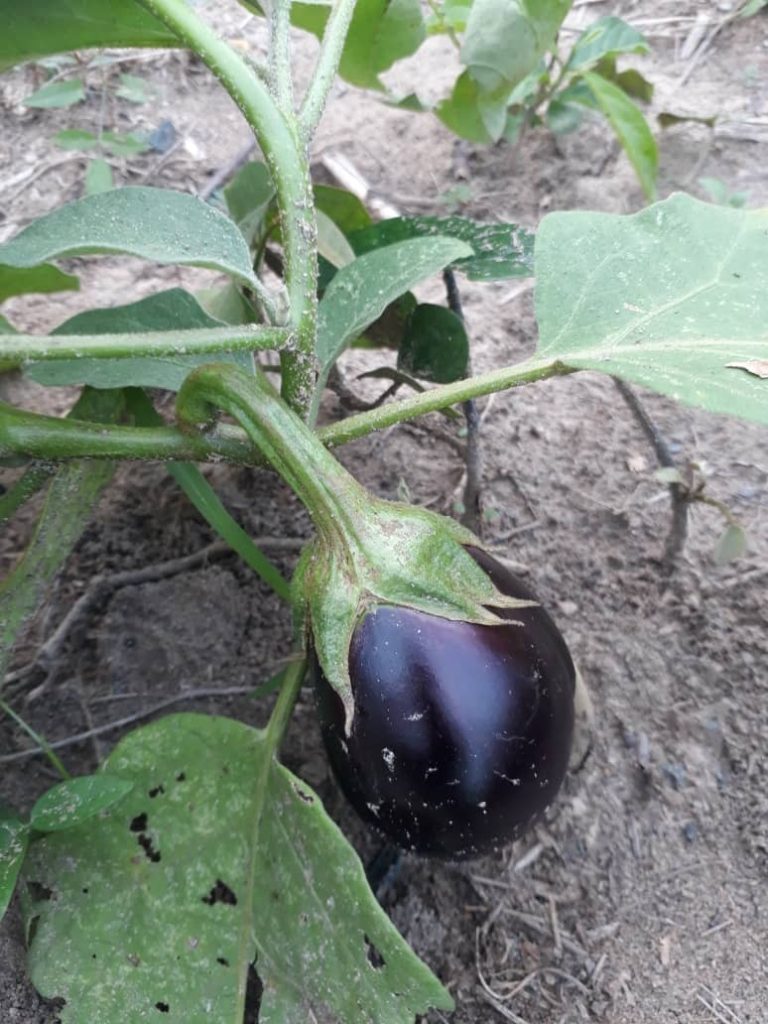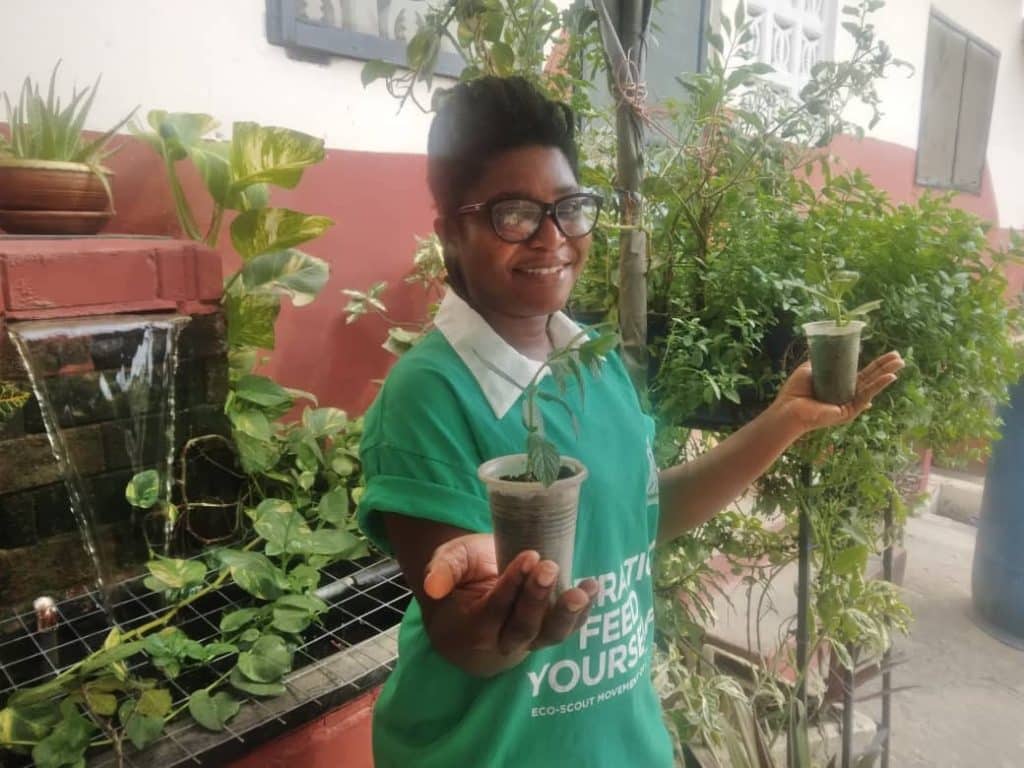Welcome to the wonderful world of gardening in Ghana! Here, the climate and soil conditions are perfect for creating a lush green oasis.
Whether you’re a seasoned gardener or a beginner, this guide will take you through the process of starting and maintaining a garden in Ghana, from planting the seeds to harvesting your crops. We’ll explore the unique challenges and benefits of gardening in this tropical paradise, and provide expert tips and practical advice for selecting the best seeds and understanding the local climate and soil conditions. With our help, you’ll be able to turn your gardening dreams into a bountiful reality. So put on your gloves and get ready to embark on an exciting journey of cultivating, nurturing, and harvesting the abundant rewards of your very own Ghanaian garden.
Benefits of Starting a Garden
Gardening offers numerous benefits, both for your physical and mental well-being. In Ghana, starting a garden provides even more advantages due to the favorable climate and soil conditions. Firstly, growing your food allows you to have access to fresh, organic produce right at your doorstep. This not only ensures that you consume healthier and tastier fruits and vegetables but also allows you to save money on grocery bills. Additionally, gardening is a great form of exercise, helping you stay active and improve your overall fitness. It also provides an opportunity to connect with nature and reduce stress levels. Moreover, having a garden enhances the visual appeal of your home, creating a calming and inviting atmosphere.
Starting a garden in Ghana is a rewarding experience that can bring immense joy and satisfaction. By growing your food, you have the opportunity to contribute to food security and sustainability, while enjoying the delicious flavors of locally grown produce. So, whether you’re looking for a new hobby, a way to improve your health, or a chance to make a positive impact on the environment, gardening in Ghana is the perfect choice.
Understanding Ghana’s Climate and Soil Conditions
Before you begin your gardening journey in Ghana, it’s crucial to understand the unique climate and soil conditions of the region. Ghana has a tropical climate, characterized by high temperatures and humidity throughout the year. The country experiences two main seasons: the rainy season and the dry season. The rainy season typically lasts from April to October, with heavy rainfall and increased humidity. The dry season, on the other hand, lasts from November to March, with lower precipitation and higher temperatures.
In terms of soil conditions, Ghana is blessed with fertile soil that is rich in organic matter. The soil type varies depending on the region, but generally, it is loamy and well-draining, making it ideal for gardening. However, it’s important to note that certain areas may have specific soil characteristics, such as sandy or clayey soil. Understanding the composition and pH level of your soil is essential for successful gardening, as it determines the availability of nutrients and the overall health of your plants.
Selecting the right plants for your Garden
Choosing the right plants for your garden is crucial, as it determines the success of your gardening endeavors. In Ghana, you have a wide variety of plants to choose from, ranging from fruits and vegetables to ornamental flowers and medicinal herbs. When selecting plants, consider factors such as their adaptability to the local climate, their preferred soil conditions, and the amount of sunlight they require.
For vegetable gardening, popular choices in Ghana include tomatoes, okra, peppers, eggplants, and leafy greens like spinach and lettuce. These crops thrive in the tropical climate and can be grown throughout the year. When it comes to fruit trees, mangoes, papayas, bananas, and citrus fruits are well-suited to the Ghanaian climate. Additionally, herbs like basil, mint, and coriander are easy to grow and add flavor to your dishes.
choosing ornamental plants, consider native species that are well-adapted to the local conditions. Flowers such as hibiscus, bougainvillea, and orchids are known for their vibrant colors and can add a touch of beauty to your garden. Research the specific requirements of each plant, including the amount of water, sunlight, and space they need, to ensure they thrive in your garden.
Preparing the Soil for Planting
Preparing the soil is a crucial step in ensuring the success of your garden. In Ghana, fertile soil provides a good foundation for planting, but it still requires proper preparation to optimize its nutrient content and drainage capabilities. Start by clearing the area of any weeds or debris, ensuring that there is enough space for your plants to grow.
To improve the soil’s fertility, consider adding organic matter such as compost or well-rotted manure. This will enrich the soil with essential nutrients and improve its structure. Spread a layer of organic matter over the soil surface and gently incorporate it into the top few inches using a garden fork or a tiller. Avoid overworking the soil to prevent compaction.
In addition to Organic matter, it’s important to ensure that the soil has good drainage. If your garden has heavy clay soil, consider adding coarse sand or gravel to improve drainage. On the other hand, if your soil is sandy, adding organic matter will help retain moisture. Conduct a soil test to determine the pH level and make any necessary adjustments using lime or sulfur to bring it to the optimal range for your plants.
Planting and Caring for Your Garden
Before planting, consider the spacing requirements of each plant to avoid overcrowding.
This will allow sufficient airflow and sunlight penetration, reducing the risk of diseases. Dig holes or trenches for your plants, ensuring they are deep enough to accommodate the roots.
When planting seedlings, gently remove them from their containers and loosen the roots before placing them in the holes. Backfill the holes with soil, firming it gently around the base of the plants. Water the newly planted seedlings thoroughly to help them establish their roots.
Proper care is essential for the health and growth of your garden. Water your plants regularly, especially during dry spells, and ensure they receive adequate sunlight. Apply organic mulch around the base of your plants to conserve moisture, suppress weed growth, and regulate soil temperature.
Fertilize your plants regularly to provide them with the necessary nutrients. Organic fertilizers, such as compost or fish emulsion, are ideal for maintaining the fertility of your soil and promoting healthy plant growth. Consider using natural pest control methods, such as companion planting and beneficial insects, to reduce the need for chemical pesticides.
Watering and irrigation techniques
Watering your garden correctly is critical, particularly in a country like Ghana with distinct dry and rainy seasons. During the dry season, when rainfall is scarce, it’s important to provide supplemental irrigation to ensure the survival and productivity of your plants.
The best time to water your garden is early in the morning or late in the evening when the temperatures are cooler, reducing water loss through evaporation. Avoid watering during the hottest part of the day, as this can result in scorching of leaves and wastewater.
To water your garden efficiently, consider using methods such as drip irrigation or soaker hoses. These techniques deliver water directly to the roots, minimizing evaporation and preventing water wastage. Mulching around your plants also helps retain moisture in the soil, reducing the frequency of watering.
Monitor the moisture levels of your soil regularly to ensure your plants receive adequate hydration. Stick your finger into the soil to a depth of about an inch. If it feels dry, it’s time to water. Adjust your watering schedule based on the weather conditions and the specific needs of your plants.
Pest Control and Disease Prevention
In any garden, pests and diseases can pose a threat to the health and productivity of your plants. It’s important to implement preventive measures to minimize the risk of infestation and keep your garden thriving.
Start by practicing good garden hygiene. Remove any dead or diseased plant material promptly to prevent the spread of diseases. Keep your garden clean and free of debris, as this can harbor pests and provide them with hiding places.
Encourage biodiversity in your garden by planting a variety of crops and flowers. This helps create a balanced ecosystem and attracts beneficial insects that prey on pests. Some examples of beneficial insects include ladybugs, lacewings, and hoverflies. Avoid using chemical pesticides unless necessary, as they can harm beneficial insects and disrupt the natural balance of your garden.
Regularly inspect your plants for signs of pests or diseases. Early detection allows for prompt action and prevents the problem from escalating.
If you notice any issues, consider using organic pest control methods such as neem oil, insecticidal soap, or homemade remedies like garlic or chili pepper sprays.
Harvesting and Preserving Your Produce
One of the most rewarding aspects of gardening is reaping the fruits of your labor. In Ghana, the tropical climate allows for year-round harvesting of various crops, providing a continuous supply of fresh produce.
When harvesting fruits and vegetables, pick them at the peak of ripeness for the best flavor and nutritional value. Different crops have different harvesting techniques, so it’s important to familiarize yourself with the specific requirements of each plant. For example, tomatoes are best harvested when they are fully colored and slightly firm, while leafy greens can be harvested by cutting the outer leaves as needed.
To extend the shelf life of your produce, proper storage techniques are essential. Some crops, such as root vegetables, can be stored in a cool, dark place for an extended period. Others, like herbs and delicate fruits, are best consumed fresh or preserved through methods such as drying, freezing, or canning.
Preserving your harvest allows you to enjoy the flavors of your garden throughout the year, even when certain crops are out of season. Experiment with different preservation techniques to find the ones that work best for you and your family.
Tips for maintaining a successful Garden in Ghana
Maintaining a successful garden in Ghana requires ongoing care and attention.
Here are some tips to help you achieve gardening success:
1. Monitor the weather conditions and adjust your gardening practices accordingly.
2. Keep an eye out for common pests and diseases in your area. Stay informed about the latest pest control methods and seek advice from local gardening experts.
3. Practice crop rotation to prevent the buildup of pests and diseases in your soil. Avoid planting the same crop in the same location year after year.
4. Take advantage of organic fertilizers and compost to nourish your soil and promote healthy plant growth. Avoid over-fertilization, as this can lead to nutrient imbalances.
5. Regularly weed your garden to prevent competition for nutrients and reduce the risk of pests and diseases. Mulching can help suppress weed growth.
6. Stay connected with other gardeners in your community. Join gardening groups or attend workshops to exchange knowledge and learn from experienced gardeners.
Resources for Gardening in Ghana
If you’re looking for additional resources to enhance your gardening journey in Ghana, several organizations and websites can provide valuable information and support. Here are a few suggestions:
1. The Ministry of Food and Agriculture (MoFA) in Ghana offers resources and programs to support agricultural activities, including gardening. Visit their website or contact your local MoFA office for guidance.
2. The Ghana National Association of Farmers and Fishermen (GNAFF) provides training and support for farmers and gardeners across the country. They organize workshops and events to promote sustainable agriculture and food production.
3. The Ghana Garden and Flower Movement (GGFM) is a non-profit organization that promotes gardening, landscaping, and flower cultivation in Ghana. They offer resources, workshops, and garden tours to inspire and educate garden enthusiasts.
4. Online Gardening communities and forums, such as the “Ghana Gardening Enthusiasts” group on Facebook, provide a platform for gardeners to connect, share experiences, and seek advice.
Conclusion
Starting and maintaining a Garden in Ghana is a fulfilling endeavor that allows you to connect with nature, grow your food, and create a beautiful outdoor space. By understanding the local climate and soil conditions, selecting the right plants, and implementing proper care and maintenance techniques, you can enjoy the bountiful rewards of your Ghanaian garden. So, roll up your sleeves, grab your gardening tools, and embark on this exciting journey of nurturing and harvesting the fruits of your labor. Happy Gardening!



Hello There. I discovered your blog using msn. That is a
really well written article. I’ll be sure to bookmark it and
return to learn more of your helpful information. Thanks for the post.
I will definitely return.